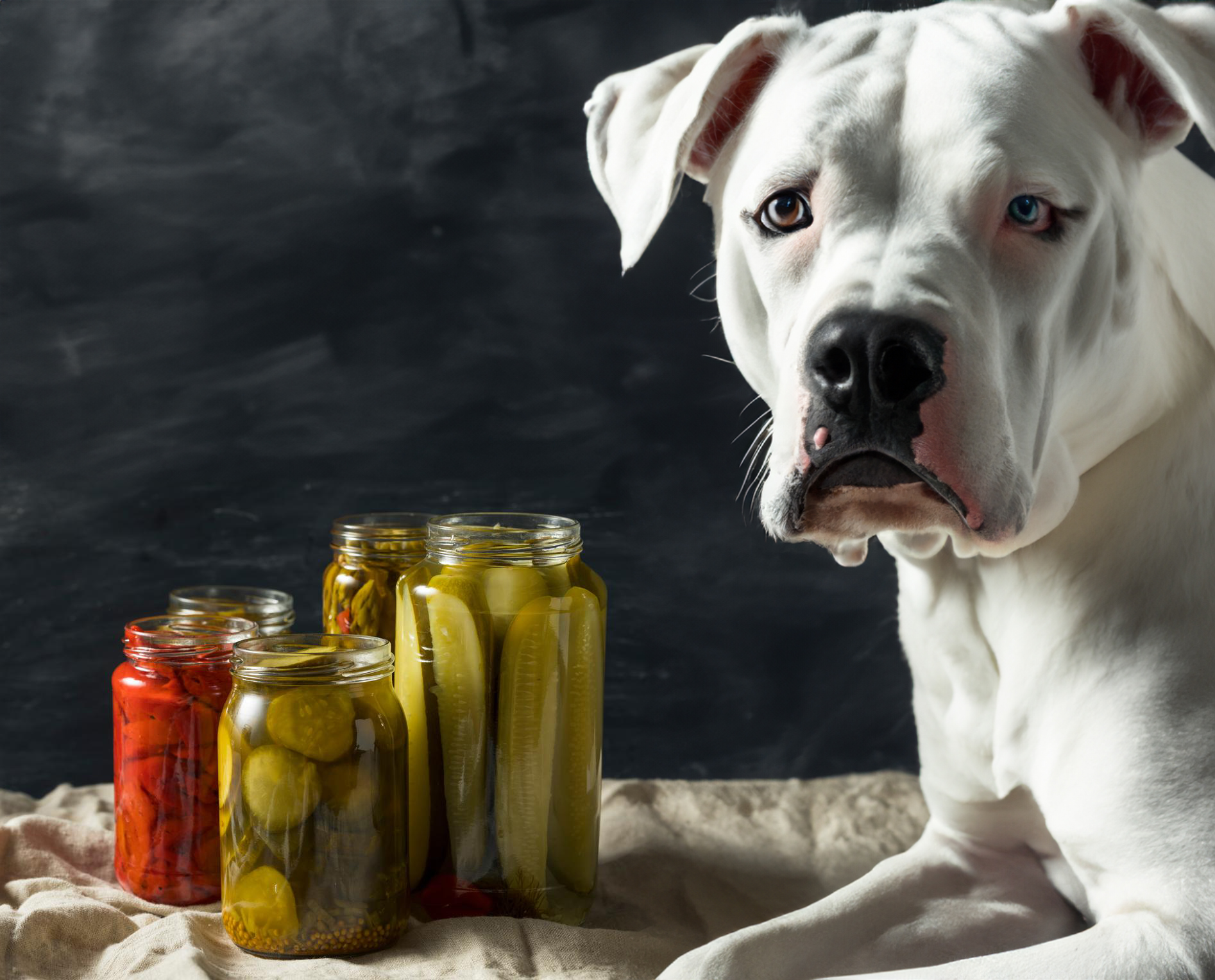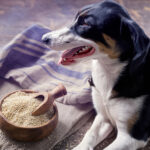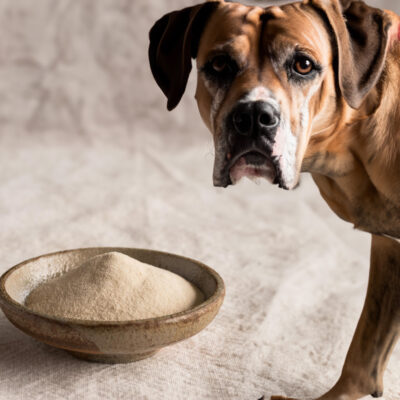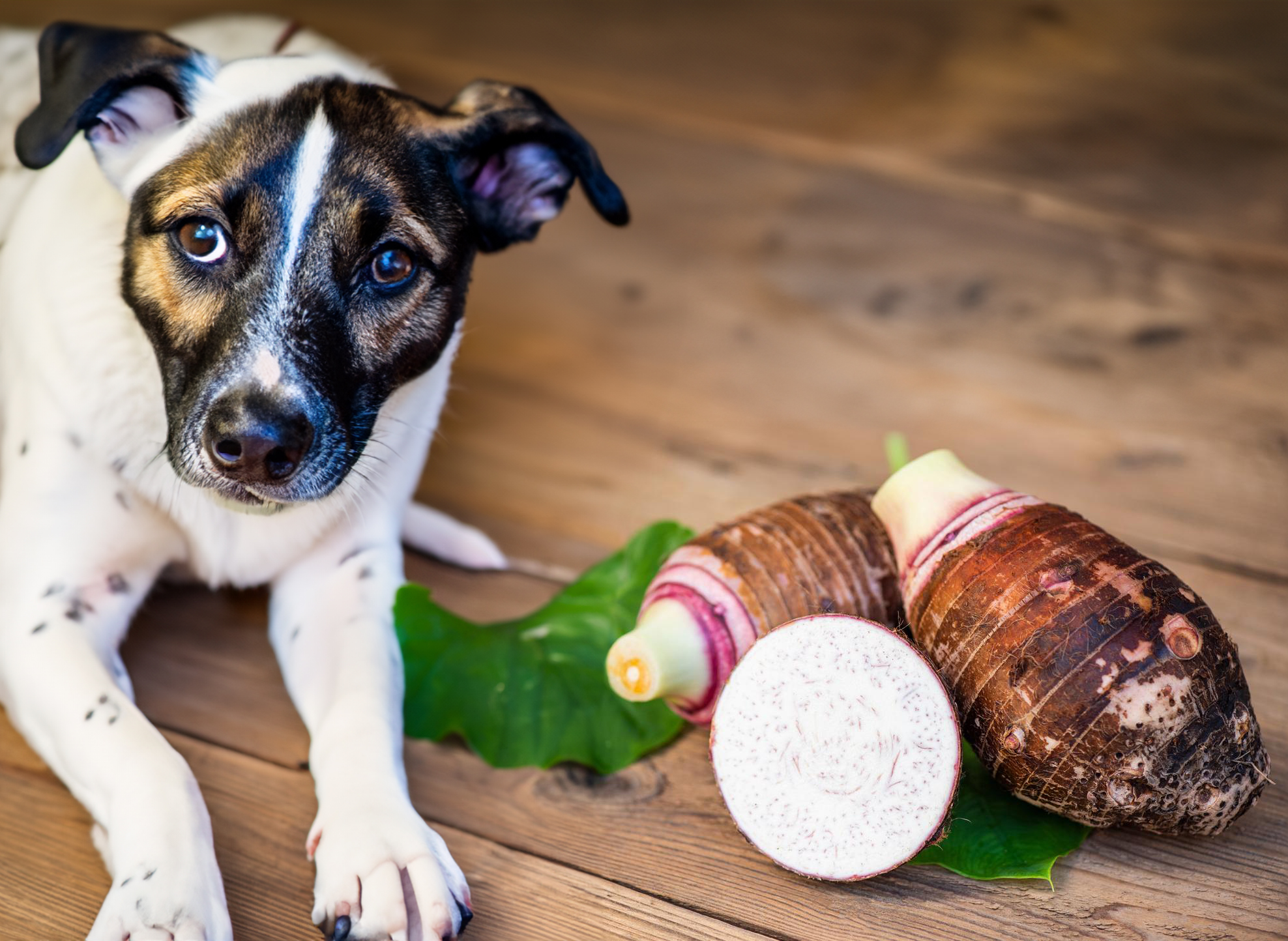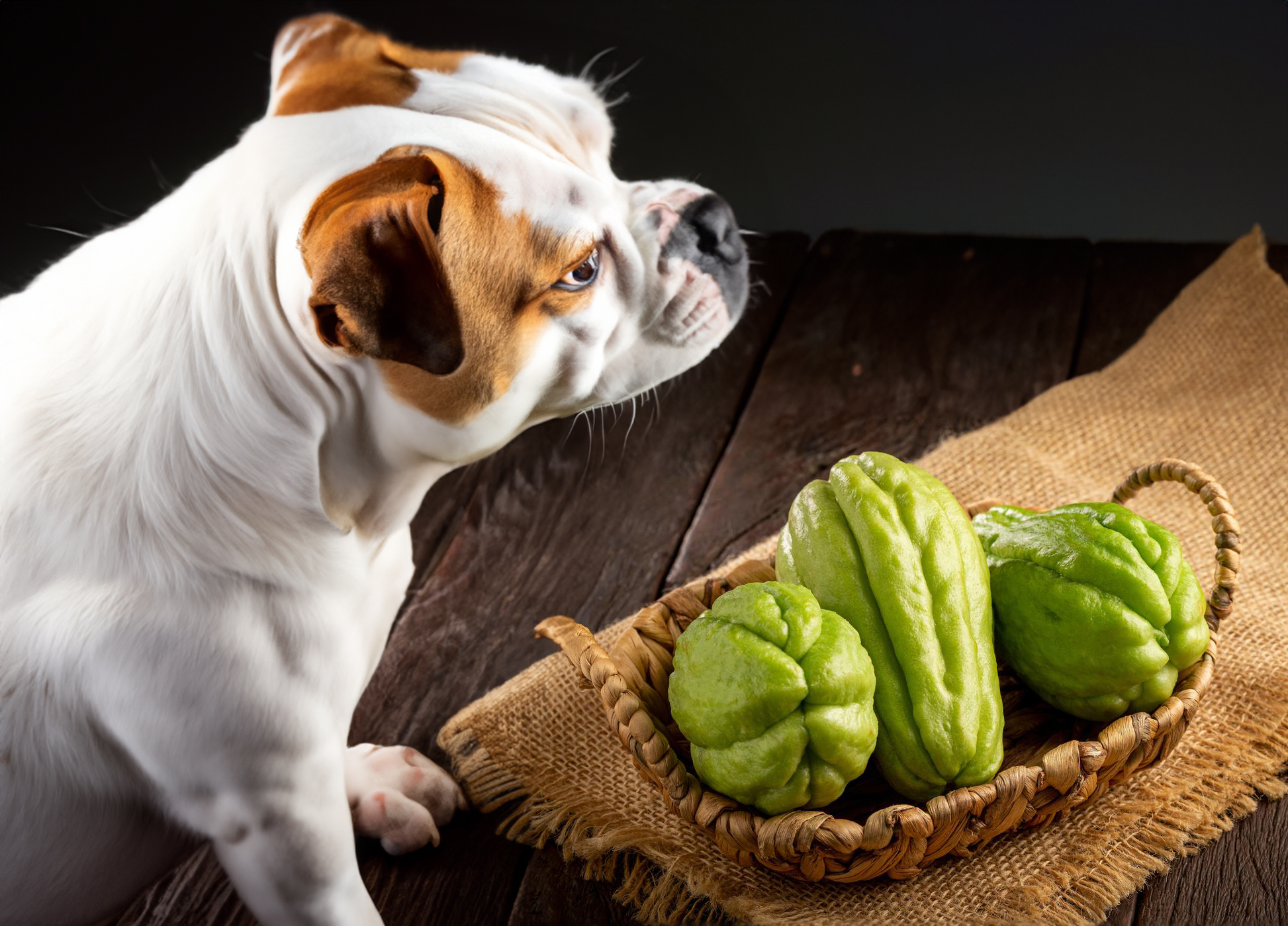Are you wondering if it’s safe to share your pickle with your pooch? You’ve come to the right place! In this blog post, we will answer all your questions about feeding your dog a pickle. We will cover the risks and benefits associated with sharing your pickle, how much you can feed your pup, and the best ways to make sure the treat is safe for your four-legged friend. So, read on to find out more about the big dill and sharing it with your pooch!
Can Dogs Eat Pickles?
You may have caught your furry friend giving you puppy eyes as you enjoy a crunchy pickle, leaving you wondering if it’s safe to share a bite. Well, the answer is a bit more complicated than a simple yes or no. While dogs can technically eat pickles, there are a few factors to consider before tossing them a slice.
Firstly, it’s important to know that pickles themselves aren’t toxic to dogs. They won’t harm your pup if they accidentally get ahold of a pickle slice. However, the high salt content in pickles can be a cause for concern. Dogs have different salt requirements than humans, and excessive salt intake can lead to health issues such as dehydration and kidney problems.
Additionally, some pickles may contain ingredients like onions or garlic, which can be toxic to dogs in large quantities. Always check the ingredient list and make sure that the pickles you’re offering to your pup are free from any harmful additives.
Furthermore, the acidity of pickles can irritate your dog’s stomach and potentially lead to digestive upset. If your dog has a sensitive stomach, it’s best to avoid sharing pickles altogether.
Nutritional Value of Pickles
When it comes to sharing your pickle with your pooch, it’s important to consider the nutritional value. While pickles may not be a highly nutritious treat for your furry friend, they do offer a few benefits.
Pickles are made from cucumbers, which are a good source of vitamins and minerals. They contain vitamin K, vitamin C, and manganese, all of which are important for your dog’s overall health. However, keep in mind that the pickling process may reduce the amount of nutrients in the cucumber.
One key factor to consider is the high sodium content in pickles. Dogs have different sodium requirements than humans, and consuming excessive amounts of salt can lead to health issues such as dehydration and kidney problems. Therefore, it’s best to limit your dog’s intake of pickles to avoid any potential problems.
On the bright side, pickles are low in calories, making them a relatively guilt-free treat option for your dog. Just be sure to offer them in moderation and balance their diet with nutritious food.
Potential Risks and Concerns of Feeding Pickles to Dogs
While pickles themselves aren’t toxic to dogs, there are several potential risks and concerns associated with feeding them to your furry friend. One of the main concerns is the high salt content in pickles. Dogs have different salt requirements than humans, and consuming excessive amounts of salt can lead to health issues such as dehydration and kidney problems. Therefore, it’s crucial to limit your dog’s intake of pickles and opt for low-sodium options if you do decide to share.
Another risk to be aware of is the presence of ingredients like onions or garlic in some pickles. These can be toxic to dogs in large quantities, so it’s essential to read the ingredient list carefully and ensure that the pickles you offer are free from any harmful additives.
Furthermore, the acidity of pickles can potentially irritate your dog’s stomach and cause digestive upset, especially if your dog has a sensitive stomach. It’s always best to monitor your dog closely after they consume pickles and consult with a veterinarian if you notice any signs of discomfort or unusual behavior.
Overall, while it may be tempting to share your pickle with your pooch, it’s crucial to be aware of the potential risks and concerns involved. It’s best to offer pickles in moderation and consider safe alternatives or consult with your veterinarian for guidance on suitable treats for your dog’s specific needs.
Moderation is Key – Guidelines for Giving Your Dog Pickles
When it comes to sharing your pickle with your furry friend, moderation is key. While it may be tempting to let your dog indulge in this tangy treat, it’s important to remember that pickles should only be given in small amounts and as an occasional snack.
To ensure your dog’s safety and health, follow these guidelines when giving them pickles:
- Portion control: Limit your dog’s intake to one or two small pickle slices at most. This will prevent them from consuming excessive amounts of salt and reduce the risk of dehydration or kidney problems.
- Choose low-sodium options: Opt for pickles that are low in sodium or even salt-free. This will help minimize the potential negative effects of excessive salt intake.
- Monitor your dog’s reaction: After giving your dog a pickle, observe their behavior and digestive system. If you notice any signs of discomfort, such as vomiting or diarrhea, discontinue giving them pickles and consult with your veterinarian.
- Balance their diet: Remember that pickles should not replace a balanced and nutritious diet for your dog. They should be considered as an occasional treat rather than a regular part of their daily meals.
By following these guidelines, you can safely share your pickle with your pooch while keeping their health and well-being in mind. Remember, moderation is key when it comes to treats for your furry friend!
Safe Alternatives to Pickles for Dogs
If you’re concerned about feeding your dog pickles or if your pup has a sensitive stomach, there are plenty of safe and tasty alternatives to consider. These options will give your four-legged friend a satisfying crunch without the potential risks associated with pickles.
- Carrot Sticks: Carrots are a great alternative to pickles. They are low in calories, high in fiber, and packed with essential vitamins. Plus, their natural crunch will keep your dog happily munching away.
- Cucumber Slices: Like pickles, cucumbers are also a refreshing and hydrating snack for dogs. They are low in calories and offer similar nutritional benefits as pickles without the added salt.
- Apple Slices: Apples are a sweet and nutritious treat for your furry friend. Just make sure to remove the seeds and core before offering them to your dog. Apples provide vitamins, fiber, and antioxidants that can support your dog’s overall health.
- Sweet Potato Chews: Sweet potatoes are a tasty and nutritious alternative to pickles. They are rich in fiber, vitamins, and minerals, and make a satisfying chew for your pup. Just make sure to bake or steam them before giving them to your dog.
Remember, always introduce new foods gradually and in small amounts to monitor your dog’s reaction. And as with any treat, moderation is key. These safe alternatives to pickles will give your dog a healthy and enjoyable snacking experience.




